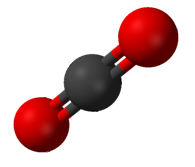Chemistry
Chemistry is the science that studies the properties, composition, and transformation of matter. It is a central science connecting other natural sciences such as physics, geology, and biology with each other, thus playing a crucial role in explaining the natural world. The discipline involves the investigation of the interactions between atoms, the formation of molecular structures, and the mechanisms of chemical reactions to create new substances.
History[edit | edit source]
The history of chemistry dates back to ancient times, with its roots in the practice of alchemy, which sought to transform base metals into gold and discover the elixir of life. The transformation from alchemy to chemistry occurred during the 17th and 18th centuries, a period known as the Chemical Revolution, largely attributed to the work of Antoine Lavoisier. Lavoisier is often referred to as the "Father of Modern Chemistry" for his definitive refutation of the phlogiston theory and his formulation of the law of conservation of mass, which laid the groundwork for modern chemistry.
Branches of Chemistry[edit | edit source]
Chemistry is divided into several major branches, each focusing on a specific area of study:
- Analytical chemistry: The study of the composition of materials.
- Biochemistry: The study of chemical processes within and related to living organisms.
- Inorganic chemistry: The study of inorganic compounds and materials.
- Organic chemistry: The study of organic compounds, primarily those containing carbon.
- Physical chemistry: The study of the physical properties of molecules, the forces that act upon them, and their reactions.
Chemical Bonds and Reactions[edit | edit source]
At the heart of chemistry is the study of chemical bonds, the forces that hold atoms together to form molecules. The main types of chemical bonds include ionic bonds, covalent bonds, and metallic bonds. Chemical reactions involve the rearrangement of atoms to form new substances, and these reactions are influenced by factors such as temperature, pressure, and the presence of catalysts.
Importance[edit | edit source]
Chemistry plays a vital role in our daily lives and has profound implications for industry, healthcare, and the environment. It is essential for the development of new materials, pharmaceuticals, and energy sources, as well as for understanding and mitigating environmental issues such as pollution and climate change.
See Also[edit | edit source]
Search WikiMD
Ad.Tired of being Overweight? Try W8MD's physician weight loss program.
Semaglutide (Ozempic / Wegovy and Tirzepatide (Mounjaro / Zepbound) available.
Advertise on WikiMD
|
WikiMD's Wellness Encyclopedia |
| Let Food Be Thy Medicine Medicine Thy Food - Hippocrates |
Translate this page: - East Asian
中文,
日本,
한국어,
South Asian
हिन्दी,
தமிழ்,
తెలుగు,
Urdu,
ಕನ್ನಡ,
Southeast Asian
Indonesian,
Vietnamese,
Thai,
မြန်မာဘာသာ,
বাংলা
European
español,
Deutsch,
français,
Greek,
português do Brasil,
polski,
română,
русский,
Nederlands,
norsk,
svenska,
suomi,
Italian
Middle Eastern & African
عربى,
Turkish,
Persian,
Hebrew,
Afrikaans,
isiZulu,
Kiswahili,
Other
Bulgarian,
Hungarian,
Czech,
Swedish,
മലയാളം,
मराठी,
ਪੰਜਾਬੀ,
ગુજરાતી,
Portuguese,
Ukrainian
Medical Disclaimer: WikiMD is not a substitute for professional medical advice. The information on WikiMD is provided as an information resource only, may be incorrect, outdated or misleading, and is not to be used or relied on for any diagnostic or treatment purposes. Please consult your health care provider before making any healthcare decisions or for guidance about a specific medical condition. WikiMD expressly disclaims responsibility, and shall have no liability, for any damages, loss, injury, or liability whatsoever suffered as a result of your reliance on the information contained in this site. By visiting this site you agree to the foregoing terms and conditions, which may from time to time be changed or supplemented by WikiMD. If you do not agree to the foregoing terms and conditions, you should not enter or use this site. See full disclaimer.
Credits:Most images are courtesy of Wikimedia commons, and templates, categories Wikipedia, licensed under CC BY SA or similar.
Contributors: Prab R. Tumpati, MD





